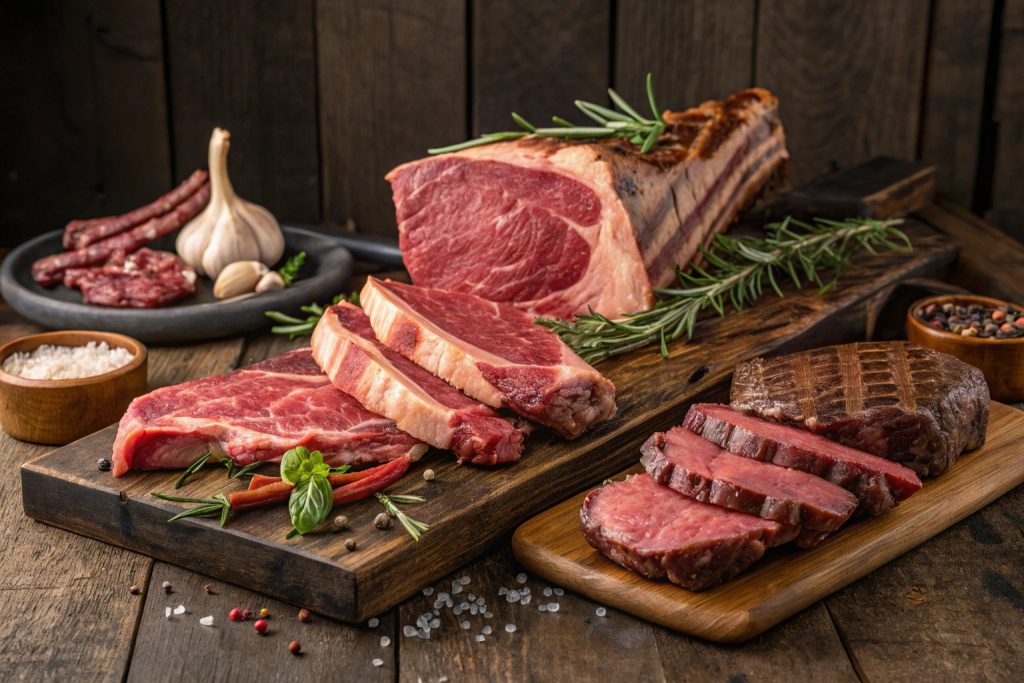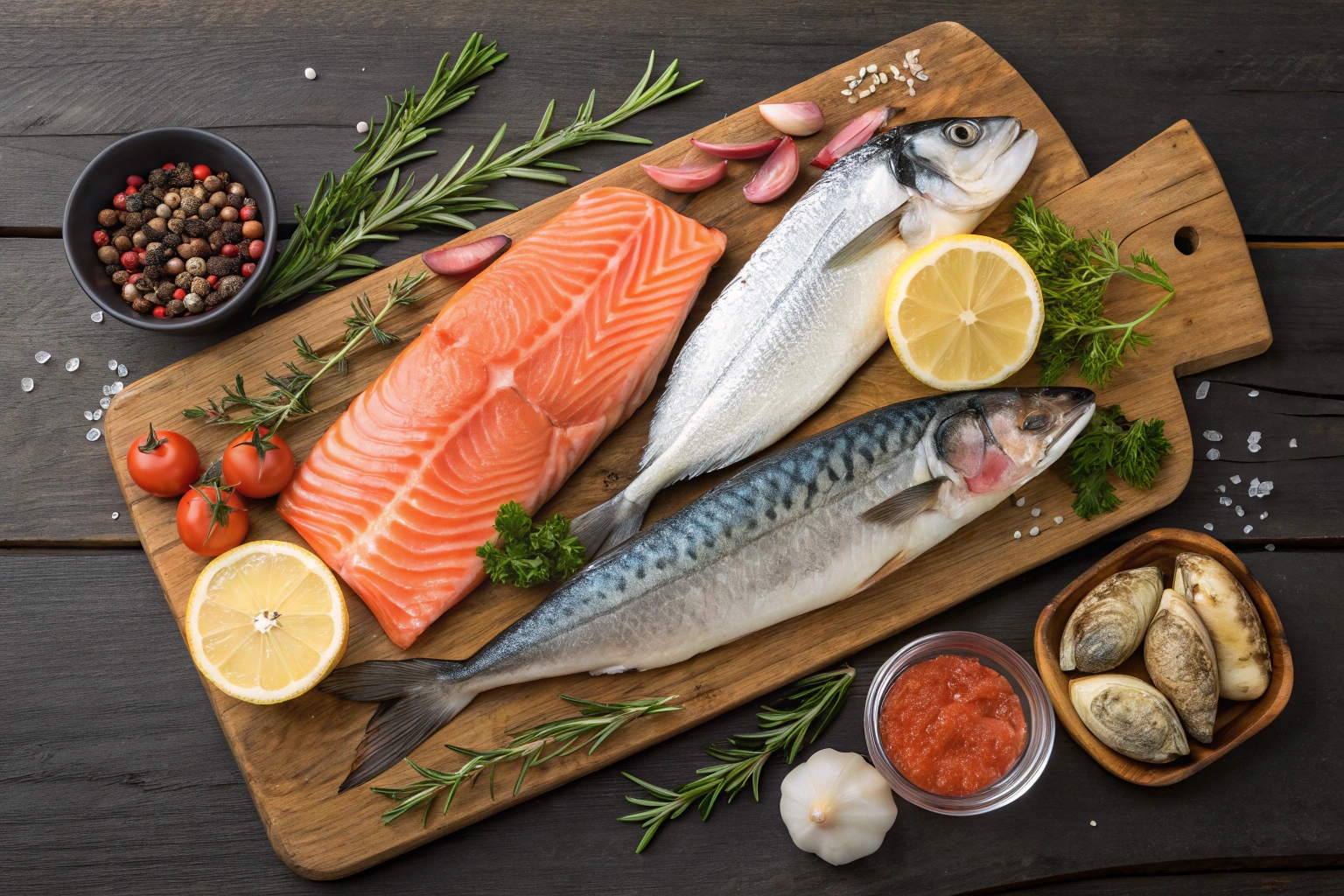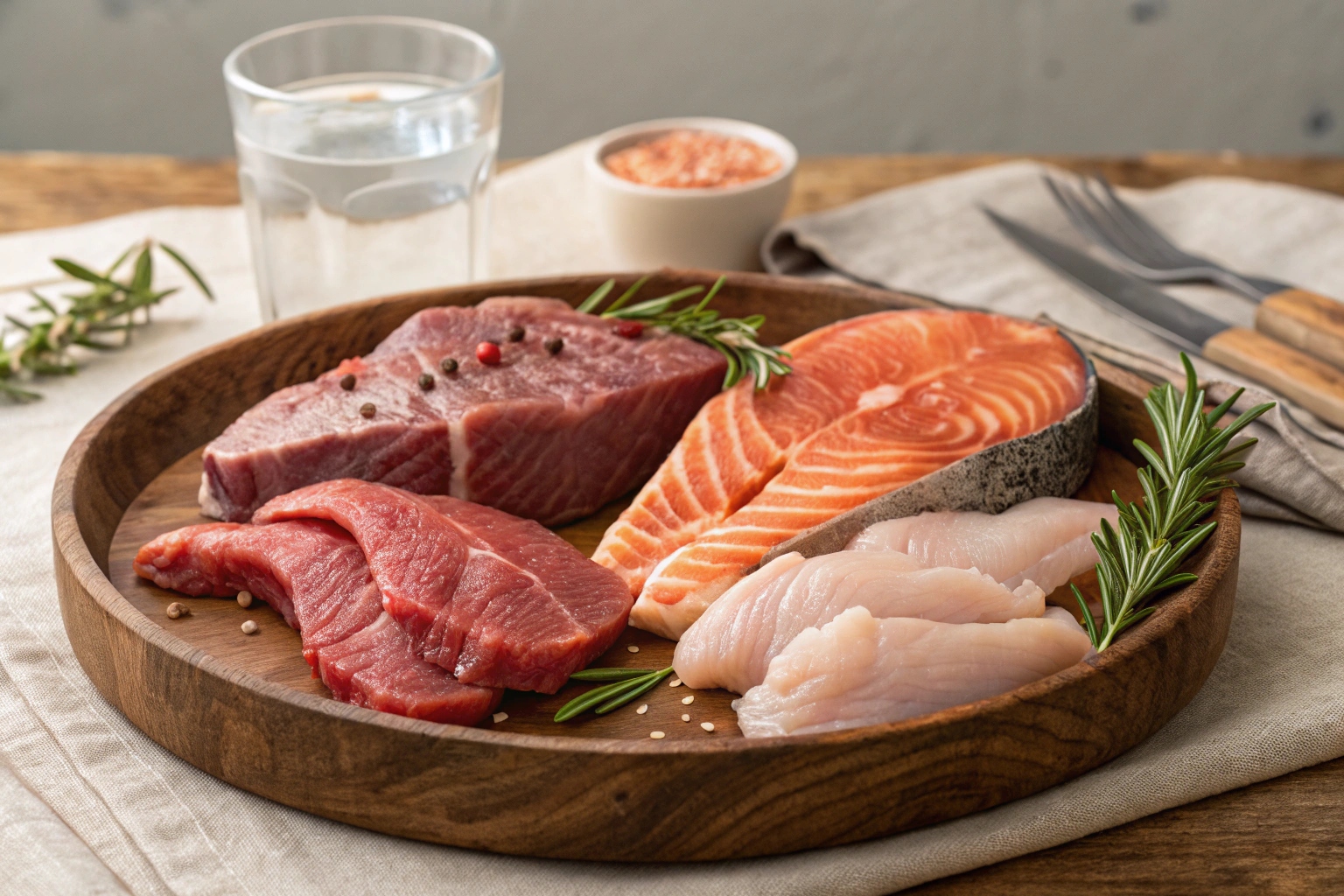The Ultimate Carnivore Diet Food List. Forget complex macros and endless ingredient lists. The carnivore diet strips nutrition back to its primal core: animal foods. This guide delivers the definitive carnivore diet food list – meticulously researched, uniquely crafted, and optimized to help you thrive on this ancestral path.
Introduction: Embracing the Meat-Centric Life
The carnivore diet, often dubbed the “zero-carb” or “all-meat” diet, is exactly what it sounds like: consuming exclusively animal-derived foods and eliminating all plant matter. It represents an end of the low-carb, high-fat (LCHF) and ketogenic spectrum, pushing the body into a state of nutritional ketosis where fat becomes the primary fuel source.
- Why Carnivore? Proponents report significant benefits, including dramatic weight loss, reduced inflammation, reversal of autoimmune symptoms, improved mental clarity, stabilized energy levels, simplified digestion, and relief from various skin conditions. It’s often pursued after other dietary interventions fail.
- The Core Principle: Eliminate ALL plant foods – no vegetables, fruits, grains, legumes, nuts, seeds, sugars, or plant-based oils. Focus solely on nutrient-dense animal products.
- Beyond Just Steak: While ruminant meats (like beef and lamb) are the undisputed champions, the carnivore food list is surprisingly diverse, encompassing various meats, organs, seafood, fats, and even some dairy for those who tolerate it.
Section 1: The Foundation – Understanding Carnivore Diet Principles
- The Evolutionary Argument: Humans evolved as apex predators. Our large brains, shorter digestive tracts compared to those of herbivores, and specific nutrient requirements (such as heme iron, B12, and DHA) point to a significant reliance on animal foods throughout history. Archaeological evidence supports extensive meat consumption.
- Hormonal Harmony: By removing plant toxins (lectins, oxalates, phytates), antinutrients, and sugars, the carnivore diet aims to reduce inflammation and insulin spikes, allowing hormones like insulin and leptin to function optimally. This promotes satiety and fat burning.
- Gut Health Reset: For individuals with severe gut dysbiosis (SIBO, IBS, IBD), plant fibers can be irritants. Carnivore provides easily digestible nutrition, allowing the gut lining to heal. The reduction in fermentable carbs (FODMAPs) starves problematic gut bacteria.
- Autoimmunity & Inflammation: Many plant compounds can trigger immune responses or contribute to “leaky gut.” Removing these potential triggers is a cornerstone strategy for managing autoimmune conditions within the carnivore framework.
- Simplicity is Key: One of the diet’s biggest draws is its simplicity. No calorie counting, minimal meal prep (focus on cooking meat!), and reduced decision fatigue around food choices.
Section 2: The Carnivore Diet Food List – Your Animal Kingdom Pantry

The Ultimate Carnivore Diet Food List
This is the heart of the guide – the exhaustive, categorized list of carnivore-approved foods.
2.1. The Powerhouse: Ruminant Meats (The Carnivore Gold Standard)
- Beef: The undisputed staple. Prioritize fatty cuts.
- Cuts: Ribeye, New York Strip, T-Bone/Porterhouse, Sirloin (especially top sirloin cap/Picanha), Chuck Roast/Steak (excellent for slow cooking), Brisket, Short Ribs, Ground Beef (70/30, 80/20 fat ratio ideal), Oxtail, Flank/Skirt Steak (leaner, pair with fat).
- Preparation: Steaks, roasts, burgers, stews, slow-cooked (pulled beef), minced/ground.
- Lamb: Rich flavor, highly nutritious.
- Cuts: Lamb chops (rib, loin), leg of lamb, lamb shoulder, ground lamb, lamb shanks.
- Goat: Similar to lamb, widely consumed globally.
- Cuts: Goat chops, leg, shoulder, ground goat.
- Bison/Buffalo: Leaner than beef but highly nutritious. Often requires added fat.
- Venison (Deer): Very lean game meat. Essential to add significant fat during cooking or eating.
- Elk, Moose, Antelope: Other game ruminants. Generally lean; supplement with fat.
- Why Ruminants Rule: Their complex digestive systems (multiple stomachs) effectively filter toxins and concentrate essential nutrients like B vitamins, minerals (especially iron, zinc, selenium), CLA (Conjugated Linoleic Acid), and saturated fats. They are typically grass-fed/finished, aligning with carnivore ideals.
2.2. Other Meats: Pork, Poultry, and More
- Pork: A versatile and fatty option.
- Cuts: Pork belly (uncured bacon source – see caveat below), Pork Shoulder (Boston Butt/Picnic Roast), Pork Chops (especially rib chops with fat cap), Ham (check for sugar/cure additives – often NOT carnivore), Ground Pork, Pork Loin (leaner).
- Bacon & Sausages: CAUTION: Most commercial bacon and sausages contain significant sugar, dextrose, nitrites/nitrates from plant sources, spices, and fillers. Look for: Uncured bacon (check ingredients – should ONLY be pork belly and salt), or make your own. Sausages should be made from pure meat, fat, and salt – a rarity in commercial production. Always scrutinize labels meticulously.
- Poultry: Generally leaner than ruminants. Dark meat and skin are fattier.
- Chicken: Thighs (with skin!), Drumsticks (with skin), Wings (with skin), Whole Chicken/Roasters (eat the skin!), Chicken Feet (excellent for broth). Breast meat is very lean; consider consuming it with added fat.
- Turkey: Similar to chicken. Prioritize thighs, drumsticks, wings, dark meat ground turkey. Skin is good fat. Breast is lean; add fat.
- Duck: Fatty and delicious, especially the skin and dark meat. Duck fat is prized.
- Goose: Rich, dark meat, high in fat.
- Other Meats:
- Rabbit: Very lean; requires added fat.
- Ostrich/Emu: Lean game birds; add fat.
2.3. Nature’s Multivitamin: Organ Meats (Offal)
- Essential for Nutrient Density: Organs are the most nutrient-concentrated foods on the planet. Aim to include them regularly, even in small amounts (e.g., 1-3 times per week).
- Liver: The king of organs. Unparalleled source of Vitamin A (Retinol), B Vitamins (especially B12, Folate, Riboflavin), Copper, Iron (heme), Choline. Start with small servings (1-2 oz) to assess tolerance.
- Types: Beef liver, Calf liver (milder), Chicken liver, Lamb liver, Duck liver (Foie Gras – check for additives), Cod liver (also provides Vitamins D & A).
- Heart: Excellent source of CoQ10 (crucial for energy production), B vitamins, collagen, and highly bioavailable iron. Tastes like lean muscle meat.
- Kidney: Rich source of B vitamins (especially B12, Riboflavin), selenium, and heme iron. Has a distinct flavor; soaking in milk or saltwater can mellow it.
- Brain: High in DHA (Omega-3), cholesterol, and phospholipids. Sourcing can be difficult; ensure it’s from healthy, pasture-raised animals if possible.
- Tongue: Tender and fatty, rich in B vitamins, zinc, and choline. Essentially a muscle meat.
- Sweetbreads (Thymus/Pancreas): Delicate flavor, rich in nutrients, including vitamin C (rare in animal foods).
- Tripe (Stomach Lining): Good source of collagen/gelatin. Needs thorough cleaning and long cooking.
- Getting Organs In: If the taste/texture is challenging, try chopping finely into ground meat, making pâtés, dehydrating into capsules/powders (ensure a pure source), or consuming small, frozen pieces.

2.4. From the Waters: Fish & Seafood
- Fatty Fish: Prized for Omega-3s (EPA/DHA) and Vitamin D.
- Salmon (Wild-caught preferred), Mackerel, Sardines (packed in water or olive oil – check oil source), Herring, Anchovies, Trout.
- White Fish & Lean Seafood: Excellent protein sources, lower in fat. Pair with added fats (butter, tallow).
- Cod, Haddock, Halibut, Tilapia, Snapper, Bass, Shrimp, Scallops, Crab, Lobster, Oysters, Clams, Mussels.
- Shellfish: Particularly oysters are incredibly rich in Zinc and Copper. Clams and mussels are also nutrient-dense.
- Roe (Fish Eggs): Caviar (check for additives/sugars), Salmon Roe, Tobiko. Nutrient powerhouses.
- Canned Fish: Sardines, Mackerel, Salmon, Tuna (in water – watch mercury levels; occasional). Convenient options. Avoid versions in vegetable oils or with added sugars/flavors.
- Sourcing: Prioritize wild-caught over farmed when possible for better Omega-3:6 ratio and fewer contaminants.
2.5. The Fat Factor: Essential Carnivore Fats & Oils
- Why Fat is Crucial: On carnivores, fat is your primary energy source. Adequate fat intake helps prevent protein fatigue, maintains satiety, supports hormone production, and enhances vitamin absorption. Listen to your body – if hungry, eat more fat!
- Animal-Based Fats Only:
- Tallow (Rendered Beef Fat): High smoke point, ideal for frying, roasting. Rich in stearic acid.
- Lard (Rendered Pork Fat): Excellent for frying and baking. Source of monounsaturated fats.
- Duck Fat / Goose Fat: Delicious flavor, excellent for roasting vegetables (if not strict) or meats.
- Butter (Grass-Fed Preferred): Contains trace carbs (lactose) and milk proteins. Well-tolerated by many carnivores. Rich in butyrate and fat-soluble vitamins (A, D, E, K2). Clarified Butter (Ghee) removes lactose and casein, making it suitable for stricter carnivores or those with lactose or casein sensitivity.
- Suet (Raw Kidney Fat): Can be rendered into tallow or eaten raw/frozen by some. It is very nutrient-dense.
- Bacon Grease: Use only if from truly carnivore-approved bacon (pork belly + salt only). Delicious flavor.
- Avoid Completely: All seed oils (canola, soybean, corn, sunflower, safflower, grapeseed, cottonseed, peanut), vegetable oils, margarine, plant-based butter substitutes. These are highly processed and inflammatory.
2.6. The Dairy Dilemma: Navigating Milk Products
- Not Strictly Carnivore: Dairy comes from animals but is not muscle or organ meat. Its inclusion is a personal choice and depends on individual tolerance (lactose and casein sensitivity) and the desired level of dietary strictness.
- Carnivore-Approved Dairy (for those who include it):
- Butter & Ghee (Clarified Butter): Most widely accepted due to very low lactose/casein (especially ghee). Primary source is fat.
- Heavy Whipping Cream (HWC): Very low in lactose/carbs. Use in coffee, make carnivore “ice cream,” add to scrambled eggs. Check for additives (carrageenan, gums).
- Hard Cheeses (Aged): Parmesan, Cheddar, Gouda, Swiss, etc. Lowest in lactose. A good source of fat, protein, calcium, and Vitamin K2. Check for non-animal rennet if strict.
- Soft Cheeses (Moderation): Cream cheese, Brie, Camembert. Slightly higher lactose than hard cheeses. Check ingredients.
- Proceed with Caution or Avoid:
- Milk: High in lactose (milk sugar). Generally not recommended.
- Yogurt: Contains lactose and often added sugars/flavors. Some might tolerate plain, full-fat, unsweetened products in small amounts, but they introduce carbs and potential irritants.
- Sour Cream: Often contains thickeners. Check labels if considering.
- Cottage Cheese/Ricotta: Higher lactose and carb content. Not ideal.
- Key Considerations: Dairy can stall weight loss for some, trigger inflammation or digestive issues in sensitive individuals, and introduce insulinogenic proteins (whey, casein). If including, prioritize high-fat, low-lactose options and monitor your body’s response. For autoimmune protocols or maximum benefits, eliminating Dairy is often recommended.
2.7. Eggs: Nature’s Perfect Package?
- Generally Included: Eggs are a carnivore staple for most. They are nutrient-dense (in choline, B vitamins, selenium, and lutein/zeaxanthin), affordable, and versatile.
- Preparation: Fried (in animal fat), scrambled (with butter/HWC), hard/soft boiled, poached, deviled (use only carnivore ingredients like mayo from egg yolk/oil or just yolk/fat).
- Sourcing: Pasture-raised eggs are optimal, offering a superior Omega-3:6 ratio and higher nutrient levels than conventional eggs.
- Potential Sensitivities: Some individuals may react to egg whites (protein sensitivity). If experiencing issues, try consuming only yolks. Rarely, some strict carnivores avoid eggs.

2.8. Hydration & Seasonings: Keeping it Pure
- Hydration:
- Water: The cornerstone. Drink to thirst. Mineral water is fine.
- Bone Broth: Homemade is best (simmer bones, joints, and feet with salt and vinegar)—excellent source of electrolytes (sodium, potassium, magnesium, calcium), collagen, gelatin. Avoid store-bought versions with vegetables, sugars, or additives.
- Electrolyte Supplements: Crucial, especially during adaptation (“keto flu”). Look for sodium, potassium, magnesium blends without sugar, fillers, or flavorings. Add salt (sodium chloride) liberally to food and water.
- Seasonings (The Minimalist Approach):
- Salt (Essential): Sea salt, Himalayan pink salt, Redmond Real Salt. Provides vital sodium and trace minerals.
- Pepper (Controversial): Black pepper is a seed/berry. Some strict carnivores avoid it due to plant origin and potential gut irritants (like piperine). Others tolerate small amounts. Decide based on your goals/tolerance.
- Avoid: All herbs, spices, garlic, onion, chili powder, etc. They are plant-derived. Vinegar (except trace amounts in bone broth) is typically avoided as it’s fermented plant matter.
Section 3: The Absolute “No” List – Foods to Eliminate Completely
This is non-negotiable for a true carnivore diet:
- All Vegetables: Leafy greens, broccoli, cauliflower, peppers, onions, garlic, potatoes, tomatoes, cucumbers, carrots – EVERYTHING.
- All Fruits: Berries, apples, bananas, oranges, etc. – high in sugar/fructose.
- All Grains: Wheat, rice, oats, corn, quinoa, barley, etc. – and all products made from them (bread, pasta, cereal, crackers).
- All Legumes: Beans (black, kidney, pinto, etc.), lentils, chickpeas, peanuts (they are legumes, not nuts!), soybeans (and tofu, tempeh).
- All Nuts & Seeds: Almonds, walnuts, cashews, sunflower seeds, chia seeds, flaxseeds, pumpkin seeds, nut butters.
- All Plant-Based Oils: Canola, soybean, corn, sunflower, safflower, grapeseed, peanut, coconut oil (controversial, but technically a plant fat), olive oil (technically a fruit, avoid for strict carnivore), avocado oil.
- All Added Sugars & Sweeteners: Table sugar, honey, maple syrup, agave, artificial sweeteners (aspartame, sucralose, etc.), monk fruit, stevia.
- Processed Foods Containing ANY Plant Ingredients: Read every label meticulously. Avoid sauces (such as ketchup, BBQ, and soy sauce), dressings, soups, stocks/broths with added vegetables/sugar, processed meats with fillers/sugars/spices, and protein bars/shakes containing plant ingredients.
- Alcohol: Beer, wine, spirits – all derived from plants/fermentation.
- Beverages: Coffee, tea (herbal or black/green), soda, juice, plant-based milks (almond, soy, oat). Water and bone broth only. (Note: Some carnivores include black coffee/tea as a “gray area” concession.).
Section 4: Implementing Your Carnivore Diet Food List – Practical Tips
- Start Simple: Begin with fatty cuts of ruminant meat (like ribeye or ground beef), salt, and water. Master this before adding other categories, such as eggs, Dairy, or diverse seafood.
- Prioritize Fat: Don’t fear fat. Cook meats in tallow, lard, or butter. Eat the fatty parts. If you feel hungry between meals or lack energy, increase your fat intake significantly.
- Salt Liberally: Animal foods are naturally lower in sodium than processed foods. Add salt to taste and consider adding it to water, especially during the adaptation phase and when exercising heavily or sweating a lot. Electrolyte supplementation (sodium, potassium, magnesium) is often essential initially.
- Listen to Your Body (Hunger & Fullness): Eat when hungry, stop when full. Avoid forcing meals or restricting eating windows initially. Your appetite will regulate naturally over time. Avoid snacking if possible; focus on satisfying meals.
- Hydrate Adequately: Drink water consistently. Bone broth is a fantastic source of hydration and electrolytes.
- Source Quality Meats:
- Grass-Fed & Finished: Ideal for ruminants, higher in Omega-3s, CLA, Vitamins A & E.
- Pasture-Raised: Ideal for poultry, pork, eggs (higher nutrient density).
- Wild-Caught: Ideal for fish/seafood.






